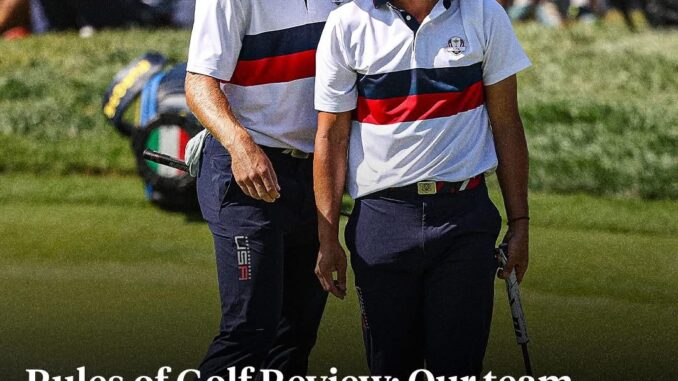
In match play, unique situations often arise that test a golfer’s knowledge of the Rules of Golf. One common scenario involves conceding a putt, only for the player to still hit the ball to gather information for their partner. So, is there a penalty? Let’s break it down.
The Scenario
During a recent match, our team conceded a short putt to an opponent. Despite the concession, the opponent proceeded to strike the putt anyway, intending to show his partner the line for their upcoming putt. This raised the question: does this action result in a penalty under the Rules of Golf?
What the Rules Say
Under the 2023 Rules of Golf:
- Rule 3.2b(2) – A player may concede an opponent’s next stroke, a hole, or the entire match at any time.
- Rule 3.2b(2) Clarification – Once a stroke is conceded, the ball is considered holed, and the player is not required to make the stroke.
- Rule 23.6/1 (Four-Ball) – If a player makes a stroke after a putt is conceded solely to assist a partner, it is considered practice and is not allowed during play of a hole.
The Penalty
In match play, hitting a putt after it has been conceded to assist a partner is a breach of Rule 23.6 because it counts as making a stroke for practice. The penalty is loss of hole for the side in four-ball match play.
However, if the player simply hit the putt out of habit or for personal satisfaction, with no intent to assist the partner, no penalty is applied. Intent is crucial.
Key Takeaway
When a putt is conceded:
- The ball is holed, and the stroke does not need to be played.
- Striking the ball to help a partner with the line can result in loss of hole.
- To avoid confusion, it’s best to pick up the ball immediately after a concession.
Understanding this rule ensures fairness and prevents costly penalties in competitive play.
Leave a Reply